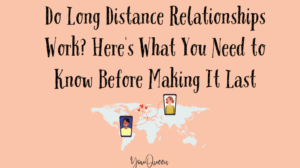I remember the first time it dawned on me I might be in a financially abusive relationship in my mid-20s. I’d just bought my mother a simple and inexpensive necklace. I showed it to my boyfriend at the time. He gave the necklace a passing glance without any comments then began pouting like a spoilt brat.
After a week of passive aggressive tongue clicking, neck rolling and barely speaking to me, I asked him what was wrong. He said he was upset because I didn’t ask his permission before buying my mother the necklace.
I was a bit taken aback. We weren’t married, or even close to getting engaged, and didn’t have combined finances. Additionally, he wasn’t working at the time because he was trying to discover himself.
I found his objection odd but didn’t let it upset me too much. I made peace and moved it along. However, after a few more incidents in the same category, his need for control of my finances began chafing on my nerves. The relationship ended shortly afterwards.
How does it begin?

It usually begins with a passing phrase or comment. An enquiry here; an unwarranted opinion there. Before you know it, you’re knee-deep in being told how to spend your money, where to spend it and/or being made to feel guilty for spending it at all. In the case where it’s not your money, a woman is held to ransom and could become isolated from family and friends as a result.
Financial abuse tends to creep up in bits and pieces and unless you’re watching for it, it’s easy to become a victim without recognizing it. By the time you realize you’re a victim, a great deal of your self-worth might have disappeared as well and it becomes a herculean task to extract yourself from the situation.
How to spot it?
If you’re wondering how to spot the signs, here are 10 questions every woman needs to ask herself when her sixth sense starts buzzing about money and its impact on her relationship:
1. Does your partner pay unnecessary attention to what you’re purchasing; making odd side comments about how much it costs? Taking the mickey out of you occasionally is funny but when it starts feeling like he’s trying to control how you spend your money, this is a definite sign nasty things are waiting for you down the road.
2. Does your partner run up debts on your credit cards or ask you to co-sign on documents that will make you financially liable if he defaults?
3. Does your partner want to be notified every time your paycheck arrives and have an excessive input on how you distribute it?
4. Does your partner slag off your job and continuously suggest that you would be better off at home where he’ll be happy to take care of you?
5. Does your partner initiate fights when it comes to spending money or blow simple things way out of proportion? For example, you bought a pair of earrings and he acts like you just bought the Hope diamond?
6. Are you scared to let your partner find out when you spend money and you end up hiding things you bought in corners of the closet he never looks?
7. Does he insist on having the confidential information to your bank accounts, credit cards and other passwords and pin codes related to your finances?
8. Do you feel like you need to ask permission every time you want to spend any money?
9. Does your partner try to stir you in directions that don’t utilize your passion, strengths and capabilities under the guise of “wanting what’s best for you?”
10. Does your partner try to isolate you from your family and friends aka the people that will talk some sense into you if they see what’s going on?
The results
If you answered yes to any of the questions above, you may be on the way to financial abuse. Now is the time to take control and stand up to your partner about the situation. Let him understand you appreciate his input but you are capable of handling your own finances and don’t need permission to spend your own money.
If you answered yes to more than one question, you are already in a financially abusive relationship and you need to do something about it immediately. You may not be able to leave right now but here are 5 things you can start working on:
1. Put together a short-term plan to extricate yourself from the situation. Give yourself a timeline and stick to it.
2. Start putting together an exit fund. Get involved with things like mystery shopping, website audits, babysitting, etc. Every penny counts.
3. Reach out to your friends and family. They may be able to provide a safe abode for you (and your kids if any) while you get back on your feet.
4. Connect with organizations set up to handle such situations.
5. If you need to go back to school to get on your feet, go back to school. You can start online. There are endless possibilities and you will find something that can match your budget especially if you get assistance from family, friends or organizations.
Have you been in a financially abusive relationship or know anyone who has? What advice would you give women in this type of situation? Are there other ways to recognize the signs of financial abuse early, which I didn’t mention in the article?














Add Comment